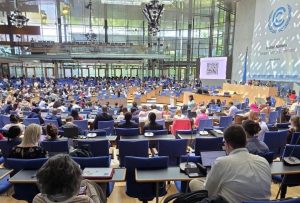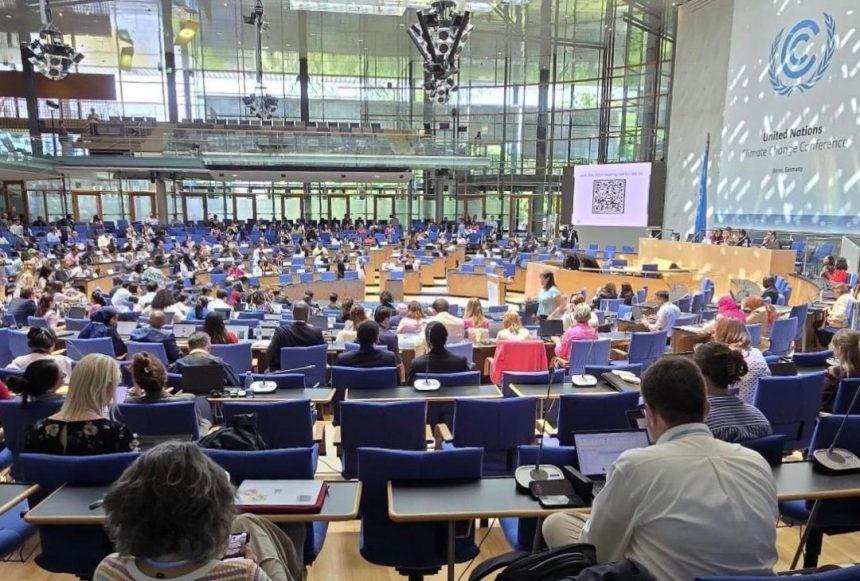Africa Sets the Pace: Addis Ababa to Host Landmark Climate Summit Focused on Homegrown Solutions and Green Finance
By : Ogbetta Ruth O.
August 3, 2025

Addis Ababa, Ethiopia – Africa is gearing up to take center stage in the global climate conversation as the Second Africa Climate Summit (ACS2) convenes in Addis Ababa from September 8 to 10, 2025. Co-hosted by the Government of Ethiopia and the African Union Commission, this year’s summit is themed “Accelerating Global Climate Solutions: Financing for Africa’s Resilient and Green Development,” and aims to spotlight the continent’s leadership in climate innovation and finance.
With over 45 African heads of state expected to attend, ACS2 will focus on two strategic pillars: showcasing African-led climate solutions and unlocking the climate finance needed to drive sustainable growth. The summit comes at a critical time, as Africa faces escalating climate threats despite contributing less than 4% of global greenhouse gas emissions. The past year was the hottest on record, and 2025 is on track to be even warmer, intensifying the urgency for action.
Building on the momentum of the inaugural summit and the Nairobi Declaration of 2023, ACS2 will push for the implementation of bold commitments and a unified African stance ahead of COP30. Central to the agenda is the need for climate finance at a scale that matches Africa’s adaptation and green industrialization ambitions. Currently, African nations are forced to divert more than 5% of their GDP to climate response, straining resources that could otherwise support health, education, and development.
Yet, Africa is not just a victim of climate change—it is a continent of solutions. The summit will highlight Africa’s drive for a just energy transition, with a goal to scale renewable energy capacity to 300 GW by 2030, ensuring universal energy access and powering green industries. By leveraging its abundant solar, wind, and mineral resources, Africa is positioning itself as a global leader in clean energy and sustainable manufacturing.

“Africa leads the world in solar potential, with vast regions receiving over 2,000 kWh per square meter annually,” said Moses Vilakati, Commissioner for Agriculture, Rural Development, Blue Economy, and Sustainable Environment at the African Union Commission. “But the climate finance gap remains a major hurdle. Only a fraction of Africa’s mitigation and adaptation needs are currently funded, and private sector investment lags far behind global averages.”
The numbers are stark: Africa needs $3 trillion to meet its climate goals, but received just $30 billion between 2021 and 2022. ACS2 aims to change this narrative by pushing for more accessible and concessional funding, and by showcasing scalable, African-led initiatives in adaptation, resilience, and renewable energy.
Ethiopia’s State Minister of Planning and Development, Seyoum Mekonen, emphasized the summit’s significance: “ACS2 is not just another event—it’s Africa’s moment to lead. We are a continent of solutions, from climate-smart agriculture and digital forest protection to green jobs for youth and women. This summit is where bold ideas meet climate justice, and where Africa’s collective momentum becomes a movement.”
The summit will feature more than 45 official events, 400 side events, and extensive consultations with governments, development partners, private sector leaders, and civil society. A flagship report on African-led climate initiatives will be unveiled, highlighting real-world impact and global relevance.
Mr. Harsan Nyambe, Director of Sustainable Environment and Blue Economy at the African Union Commission, noted the increasing frequency of extreme weather events across Africa, from prolonged droughts to devastating floods. He stressed the importance of locally tailored early warning systems that blend meteorological data, health monitoring, and indigenous knowledge to protect communities and livelihoods.
As the world looks to Addis Ababa, ACS2 promises to move beyond declarations to real delivery—reinforcing Africa’s unified call for a reformed global climate finance system and proving that investing in African solutions is an investment in the planet’s future.


